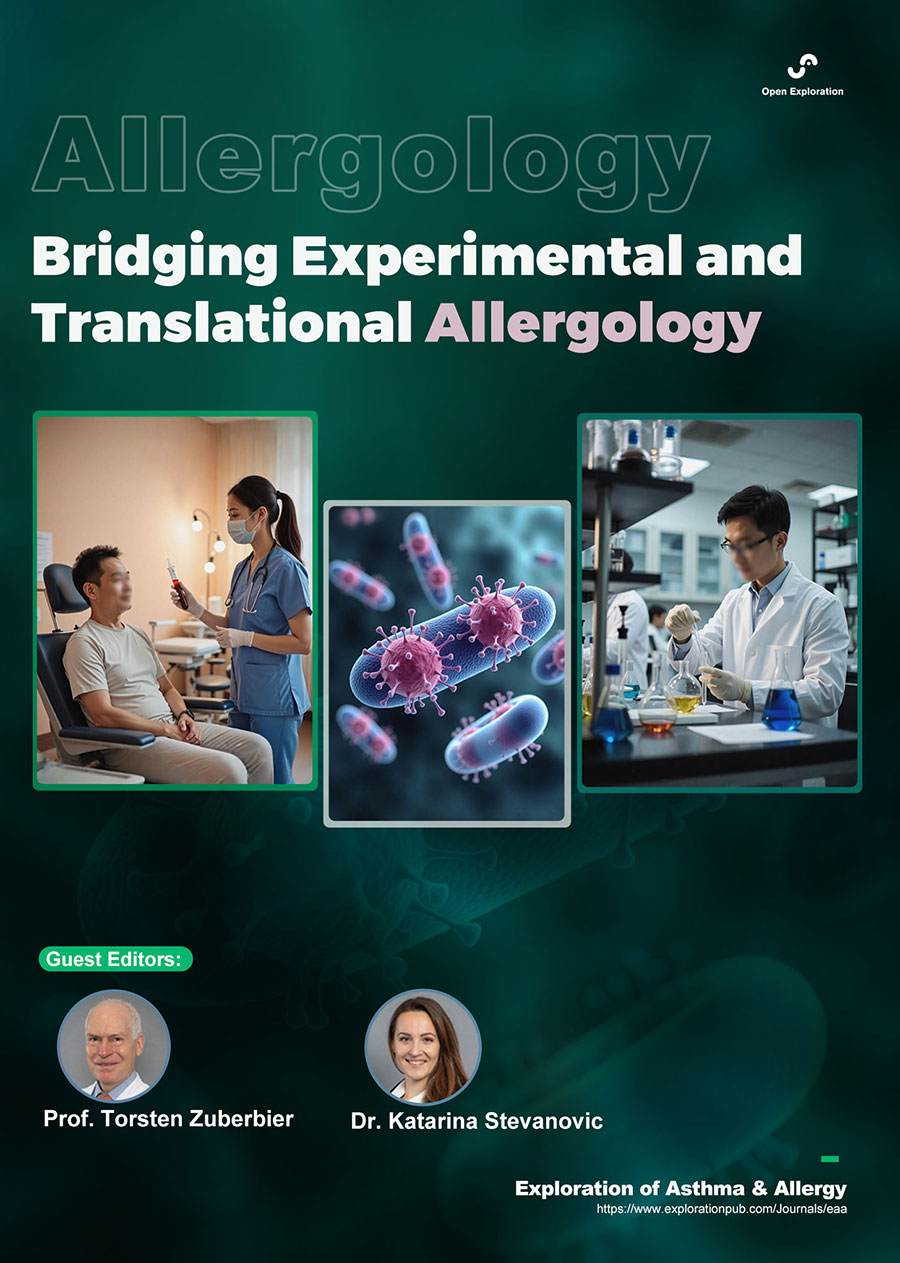
Bridging Experimental and Translational Allergology
Guest Editors
Prof. Torsten Zuberbier E-Mail
Institute of Allergology, Charité—Universitätsmedizin Berlin, Corporate Member of Freie Universität Berlin and Humboldt-Universität zu Berlin, 10117 Berlin, Germany. Fraunhofer Institute for Translational Medicine and Pharmacology ITMP, Allergology and Immunology, 12203 Berlin, Germany.
Research Keywords: Skin, allergy, atopic dermatitis, urticaria mast cells, MRGPRX2
Dr. Katarina Stevanovic E-Mail
Institute of Allergology, Charité—Universitätsmedizin Berlin, Corporate Member of Freie Universität Berlin and Humboldt-Universität zu Berlin, 10117 Berlin, Germany. Fraunhofer Institute for Translational Medicine and Pharmacology ITMP, Allergology and Immunology, 12203 Berlin, Germany.
Research Keywords: Allergy, pseudo-allergy, allergy-friendly environment, mast cells, MRGPRX2
About the Special lssue
Allergic diseases represent a growing global health challenge, affecting individuals across all age groups and contributing to significant morbidity. Despite considerable advancements in understanding the immunopathology of allergic conditions, the translation of these findings into clinical applications remains an ongoing challenge. Bridging the gap between experimental and translational allergology is critical for developing precision medicine approaches, improving diagnostics, and optimizing therapeutic interventions.
Recent research has highlighted the central role of type 2 inflammation in allergic diseases, including allergic rhinitis, asthma, atopic dermatitis, eosinophilic esophagitis, and food allergies. The interplay between mast cells, eosinophils, basophils, and T helper 2 cells, along with key cytokines such as IL-4, IL-5, IL-13, and IL-33, has been a major focus of experimental studies. Additionally, novel surface receptors, including MRGPRX2 and Siglec-8, have been identified as crucial regulators of mast cell activation. Advances in molecular allergology, including component-resolved diagnostics, have improved the identification of clinically relevant sensitizations and refined allergen immunotherapy strategies. Meanwhile, new therapeutic agents, such as biologics targeting IL-4, IL-5, IL-13, and TSLP, and small-molecule inhibitors affecting intracellular signalling pathways, are expanding treatment options for severe and refractory allergic conditions.
In this special issue, we invite original research articles, reviews, and perspective pieces focusing on key aspects of experimental and translational allergology. Topics of interest include novel mechanisms of allergic sensitization, emerging diagnostic biomarkers, immune modulation strategies, advancements in allergen immunotherapy, new drug targets in allergy treatment, the role of environmental factors in allergic diseases, and the influence of microbiome alterations on allergic inflammation and treatment responses. This issue aims to accelerate the translation of scientific discoveries into clinical practice, paving the way for innovative and personalized approaches in allergology.
Keywords: Allergic diseases, mast cells, allergen immunotherapy, biologics, precision medicine, microbiome